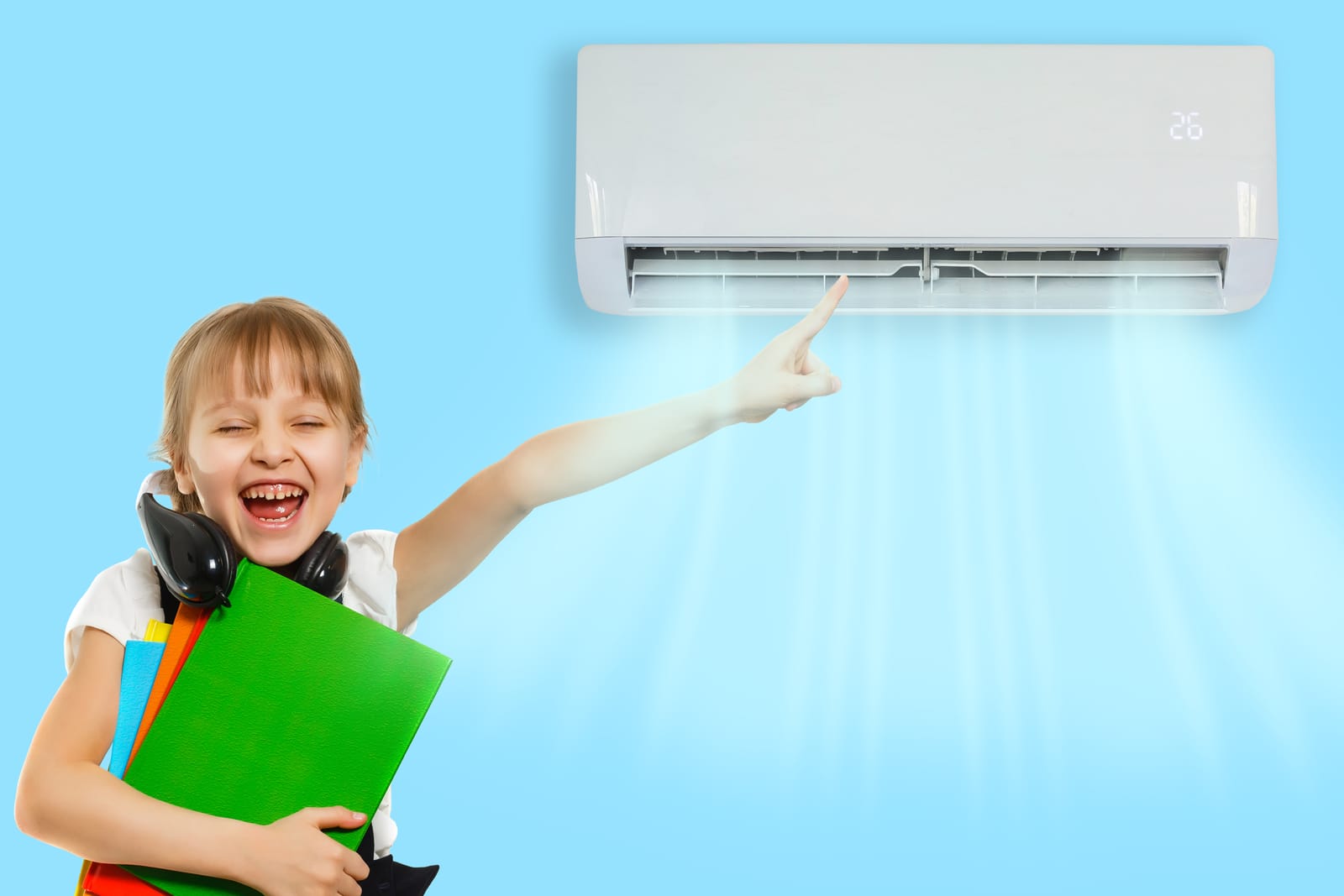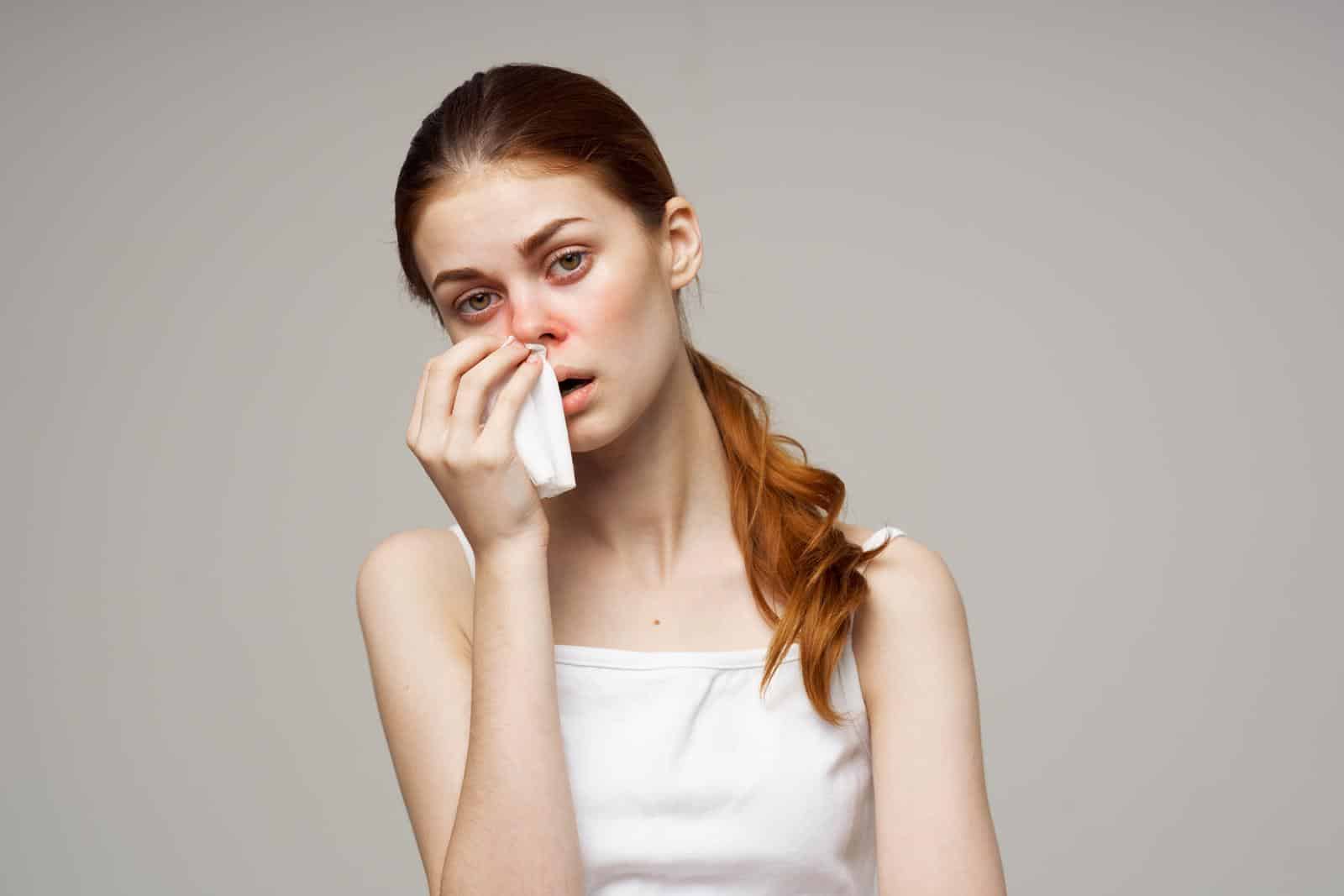When it comes to heat pumps and allergies, how can your heat pumps contribute to a healthier environment in your Dunedin home?
Heat pumps can reduce the risk of allergies and improve your family’s well-being. Traditional heating systems such as radiator heating, electric heaters, gas furnaces, and log or wood burners have the potential to spread allergens and particles.
This increases the risk of respiratory irritation and allergies. Heat pumps are fitted with filters that remove allergens such as dust and pollen from the air, providing your home with cleaner and healthier air.
Dunedin’s Allergy Challenge
Dunedin’s stunning landscapes, beaches and vibrant culture make it a popular destination for students, families, and professionals. However, Dunedin’s climate is well known for its cold and damp conditions, which increase the risk of allergen growth, particularly during the colder months.
The most common indoor allergens in Dunedin that people are concerned about are
- Dust mites
- Dust mites are microscopic creatures that thrive in humid environments. They are a common allergen in Dunedin’s climate, particularly due to the city’s relatively high humidity levels.
- Mould spores
- The most common type of dust spores found in Dunedin homes is Stachybotrys chartarum or Black mould as it is most commonly known. This type of mould spore is caused by dampness and humidity and is highly toxic.
- Pollen
- While not as prominent as in some other regions, Dunedin still has a fair amount of pollen allergens. Pollen is most prevalent in the spring and summer months. Airborne pollen is the most likely type of pollen to cause problems for allergy sufferers as the wind and air carry it.
The presence of these common indoor allergens can pose a risk for residents. Allergic reactions are a common consequence of exposure to these allergens, and the symptoms can range from mild to severe. Residents may then experience reactions such as sneezing, itchy eyes, nose and throat, and respiratory discomfort.
These allergic reactions can be particularly challenging for individuals with pre-existing allergies or asthma. Allergen exposure in a damp and cold climate like Dunedin’s can exacerbate their symptoms, making it essential to address indoor allergen levels to maintain a healthier and more comfortable living environment.

The Role of Heat Pumps in Allergy Relief
At McClelland, we believe in the importance of providing more than just temperature control. Our heat pumps in Dunedin offer a range of benefits beyond comfort that have positive impacts on indoor air quality and, consequently, your health. Our heat pumps can alleviate allergies and contribute to a healthier, more comfortable living space. Here’s how:
Improved Air Quality
One of the primary ways our heat pumps can contribute to allergy relief in your home is by enhancing indoor air quality. Unlike traditional heating systems that rely on combustion and produce harmful byproducts such as carbon monoxide and volatile organic compounds. Heat pumps operate differently.
They do not generate any harmful emissions, ensuring that the air you breathe is free from pollutants. A brand we supply, Fujitsu heat pumps are equipped with advanced filtration systems that effectively capture and remove airborne particles, including dust, pollen, pet dander, and mould spores, ensuring that the air inside your home is cleaner and free from common allergens.
Consistent Temperature and Humidity Control
Maintaining stable indoor temperature and humidity levels is essential for allergy sufferers. Since temperature and humidity fluctuations can trigger allergic reactions, they can worsen respiratory conditions and encourage the growth of allergens like dust mites and mould. Heat pumps are designed to maintain a stable and comfortable indoor environment, reducing allergen-friendly conditions.
Efficient Ventilation with Heat Pumps in Dunedin
Heat pumps can provide efficient ventilation by exchanging indoor air with fresh outdoor air while still controlling the temperature. This helps to remove indoor pollutants and allergens, ensuring that the air inside your home is constantly refreshed and of better quality.
Reduced Allergen Circulation
Traditional heating systems, especially those that rely on forced-air distribution, can inadvertently spread allergens and particles, leading to respiratory discomfort and allergies. However, our heat pumps operate differently. They do not rely on forced-air systems, which minimises the circulation of allergens and pollutants, contributing to a healthier indoor environment.
Energy Efficiency and Environmental Health
The energy efficiency of our heat pumps aligns with environmental health and well-being. By using less energy to operate, heat pumps reduce greenhouse gas emissions, contributing to a healthier environment on a larger scale.
Additionally, the energy savings you’ll experience through reduced power bills can free up resources for investing in other aspects of your health and well-being.
Debunking the Myth: Do Heat Pumps Cause Allergic Reactions?
There is a common misconception that heat pumps can cause allergies or worsen existing allergic conditions. However, scientific evidence indicates that this is not the case.
Myth: Heat Pumps Cause Allergies
Fact: Heat pumps do not cause allergies. In fact, they can help alleviate allergies by filtering and improving indoor air quality and reducing allergen circulation.
Myth: Heat Pumps Dry the Air and Cause Dry Throat and Cough
Fact: While some heating methods can lead to dry indoor air, heat pumps are designed to maintain optimal humidity levels. They help strike the right balance, preventing excessively dry or humid air, which can contribute to throat discomfort and coughing.
Myth: Heat Pumps Blow Cold Air and Cause Allergies
Fact: Heat pumps do not blow cold air. Because they distribute temperature-controlled air that is typically warm for heating and cool for cooling.

Tips for Maximising Allergy Relief with Heat Pumps in Dunedin
- Regular Filter Maintenance: Ensure that the heat pump’s air filters are cleaned or replaced regularly to maintain effective allergen removal.
- Proper Humidity Settings: Adjust the heat pump’s humidity control settings to maintain an ideal indoor humidity level, typically between 30-50%.
- Professional Installation: Have your heat pump professionally installed to ensure it operates at its peak efficiency, providing the best possible air quality.
- Regular Cleaning: Keep your home clean to reduce the overall allergen load, making it easier for the heat pump to maintain healthy air quality.
Create a Healthier, Allergen-Free Dunedin Home with Heat Pumps from McClelland.
Heat pumps are designed to enhance indoor air quality, maintain comfortable temperature and humidity levels, and reduce allergen circulation.
Dunedin’s residents can breathe easier and enjoy a healthier living environment by harnessing the benefits of heat pumps. As heat pumps can provide us with healthier, more comfortable living spaces where allergies are less of a concern.
So, when choosing a heating and cooling solution for your Dunedin home. Remember that the right technology can create an environment that supports your health and well-being.
What’s more, you can enjoy allergy relief, better indoor air quality, and a more comfortable home, all while contributing to a greener, more sustainable future.
Experience the difference in comfort and health with McClelland heat pumps in Dunedin. Contact us now at McClelland Refrigeration for all your heat pump requirements in Dunedin.
Phone: 03 477 0088
Email:




